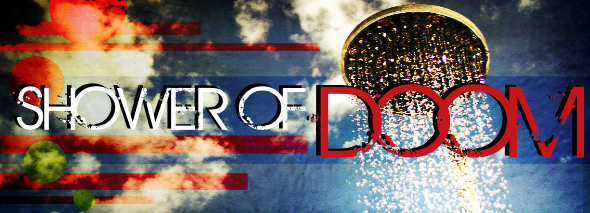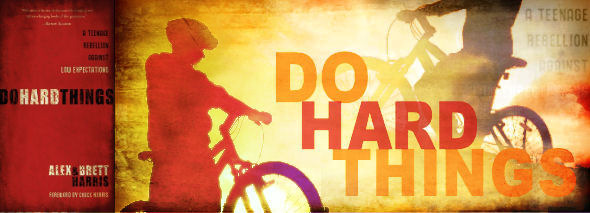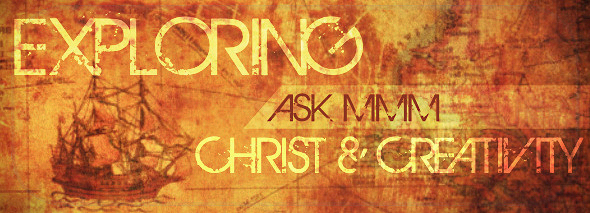
I don't watch many movies, and when I do, my viewing repertoire is limited almost entirely to films starring Audrey Hepburn or Julie Andrews. So when my twelfth-grade sociology teacher announced that we'd be watching The Notebook for an assignment (and the whole class squealed as if she had said we'd be eating cake or meeting some high-end celebrity face-to-face), I had no clue what to expect from the movie. I'd heard a lot of fuss about it following its 2004 release, but it wasn't until I'd watched the film that I realized just how much of this buzz must have been generated by Christian viewers. This cinematic, "feel-good" romance flick strikes a number of chords with believers, and it stayed in my mind long after the bell rang and the closing credits rolled down the screen.
The Notebook tells the story of Allie and Noah -- two seniors whose relationship is choked by the debilitating effects of Alzheimer's, a disease that has left Allie with no memory of her past, and no recognition of the man she once loved. Determined to spark Allie's memory, Noah visits the senior's residence where she lives and begins reading aloud the story of their love, handwritten in a notebook many years ago. The story takes place in the late 1930's, when Noah, a country-born youth who makes forty cents an hour at a lumber yard, falls in love with 17-year-old Allie, a rich city girl. Allie's parents do everything they can to keep their daughter from seeing the man, whom they regard as "trash," and the relationship is eventually cut off. Allie stifles her love for Noah and soon gets engaged to Lon, a young man who shares her noble birth and high social status. As her wedding approaches, Allie's desire for Noah is rekindled, and she embarks on a search to rediscover the lost love of her past. Whom does she choose? In her old age, will she recognize Noah and remember their story? These two questions form the basis of the movie's romantic, emotional plot. I've looked up a couple of Christian-perspective reviews for this movie, and many people seem to be split between praise for the film's overall message and critique of its less-than-moral aspects. Prominent Christian reviewers like PluggedIn, Christian Answers, and ChristianityToday seem unsure of what to make of this Nicholas Sparks-inspired hit -- yes, he's the same novelist that delighted religious audiences with the wholesome A Walk To Remember in 2002. Although Sparks, a Catholic, has no reservations about infusing faith into his movies, many viewers feel uncomfortable with the fact that The Notebook, which he calls "a metaphor of God's love for us," is full of moral loopholes and unbiblical behavior. As I see it, the film's main problem is the large discrepancy between what the movie says and how it says this. Whether the former component -- the "moral of the story" -- redeems the latter, is up to the viewer to decide based on their own convictions. In this review, I'll give you the facts that you'll need to make that decision. Let's start not with the story itself, but with how that story is told. The film has a lot of premarital sex -- it's best to be up-front about that, since it's probably the biggest issue that Christian audiences have with the movie. Of course, it's a little unreasonable to expect a secular movie to be wholly without intimate scenes, but sex in The Notebook poses two major problems to Christian viewers. Firstly, the movie's two "love" scenes are far more descriptive than its PG-13 rating lets on, and are particularly inappropriate for the teenage audience at which the film is targeted. Secondly, and far more importantly, the sex isn't just something that viewers can fast-forward through and forget about -- it is intrinsically connected with the movie's plot. Even if you skip the first sex scene, you can't skip the fact that Allie is disobeying her parents' wishes by running off with a man they don't want her to date (for the wrong reasons, true, but it's still a violation of the fifth commandment). Likewise, even if you skip the second sex scene, you can't skip the fact that Allie, in very poor judgment, has put herself in a tempting situation and is cheating on her fiance -- who, while certainly not the "right one" for her, doesn't deserve such treatment. The Notebook puts viewers in a Titanic-esque bind: it forces them to sympathize with the protagonist, even though her actions are less-than-praiseworthy. Then there's the not-so-1-Corinthians-13 representation of love which leaves Christians uncomfortable about the movie. As one online reviewer aptly put it, when Noah and Allie aren't kissing, they're fighting. "Love is gentle, love is kind" is rather lost on these two, and they quarrel constantly, sending a sullied message about the nature of love. Although, as PluggedIn Online says, this eventually shows that "love is hard, everyday work, and squabbles don't have to undo it," one has to wonder whether Noah and Allie's relationship is fueled by anything more than physical passion. It's interesting to see how a verse like "Wives, submit to your husbands" evokes cries of injustice among non-Christians, while Noah's possessive stalking of Allie when he first sees her, and the insults that he flings at her in later scenes, are gushed over as being "cute" and "loving" by movie fans. The third big trouble spot in the movie is its consistent focus on emotion-based love. Again, I'm being a little unfair since this is a secular movie, but the Bible's definition of marriage is that of two people coming together to fulfill God's plan for their lives, rather than two people who live with each other because it feels good. In the relationships portrayed in this movie, characters tend to manipulate the situation to gain a personal good rather than to help another. Allie leaves Lon for Noah because she has stopped painting and Noah inspires her. Noah starts an affair with another woman to "take the sting out of loneliness." It doesn't take an exceptionally discerning viewer to realize that this isn't Biblical, selfless love. So there's one side of the picture. I've scared you off, haven't I? Well, hold on for a few moments. The things listed above make up the "how the story is told" component -- the story itself, stripped to its barest bones, is actually a far better representation of love than most movies these days depict. Firstly, there's the message that all life is precious and worthy of honour. In an age of heated debate over euthanasia and abortion, I can't tell you how refreshing it is to find a movie that depicts and glorifies the passionate, dogged devotion of a husband to a wife who has no memory of him. At one point in the film, Noah is told to give up his efforts to spark Allie's memory, and he replies, "That's my sweetheart in there. Wherever she is, that's where my home is." The film shows that love transcends memory and mental capability -- a true portrayal of how far the vow "in sickness and in health" can be taken. Then, there's the well-needed lesson that marriage should never happen for the purpose of gaining material wealth or securing a social position. Characters who marry on the basis of economic status are clearly portrayed as being unhappy with their decision, while the relationship between upper-class Allie and country-boy Noah is a beautiful example of how differences dissipate when love enters the picture. Furthermore, Noah's relationship with his father isn't lacking in Biblical soundness, and Allie's relationship with her mom, though rocky at first (-- to say the least; it's a bit more like molten lava), begins to grow intimate as the characters open their hearts to one another, reaching a place of mutual understanding and selflessness. The movie shows that, no matter what difficulties a relationship may encounter, it can be redeemed, and that love grows all the stronger for the storms it has to weather. Other parts of the story that seem to derive their ideology from the Bible include a comment by the aged Noah on the supremacy of God. When told by a doctor that his efforts to help his wife will likely prove useless, Noah replies, "Science only comes so far, and then comes God." Noah refuses to lose hope even when medical authorities and family members point out the futility of his mission. Another instance that parallels Biblical ideas is the house that Noah builds for Allie after he discovers her engagement. Not only does he fulfill a promise that he had made in his youth -- an action that shows the importance of keeping one's word -- but his work can be said to represent the heavenly home that God is preparing for those who love him. While positive elements like these seem brief when described in this review, they are actually the very framework around which the rest of the story is built. But do they make up for the movie's negatives? The bottom line is for you to decide. On the one hand, as a 17-year-old, I don't think this film is appropriate for teenage audiences, and it's probably not something that I'll watch again in its entirety -- certain parts, however, I would gladly revisit. On the other hand, if you do find yourself seeing the movie, it gives rise to a multitude of witnessing opportunities, and will probably leave you feeling "good in a deeply thoughtful and spiritual way," as ChristianityToday puts it. But is the subtle nod to Christianity worth watching the film for? Does Sparks' assertion that "nobody is perfect" justify the bad choices some characters make? Are the movie's uplifting qualities stronger than the stumbling-blocks it poses? Yes, there's certainly a lot to be thoughtful about -- even before you see the film. Article by Oksana K.
Article by Oksana K.
Image credits: IMDB
Some Topics for Discussion: (Feel free to discuss other things related to this article!)
1) Do you believe that, despite certain problems in its plot, the overall message of The Notebook makes it a good film for Christian viewers?
2) How might this movie be used as a witnessing tool?
Leave a comment with your thoughts...
















0 comments
Post a Comment